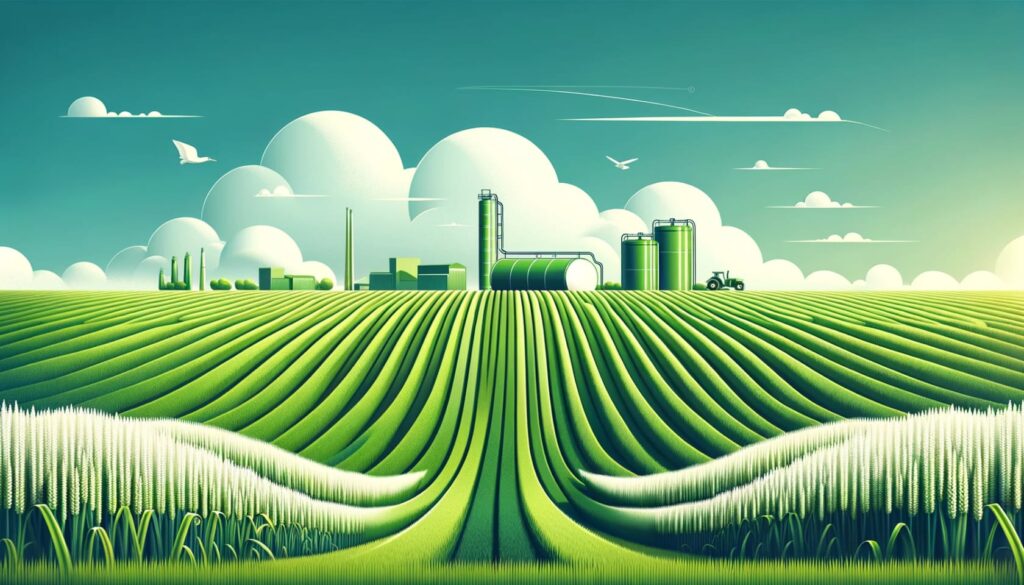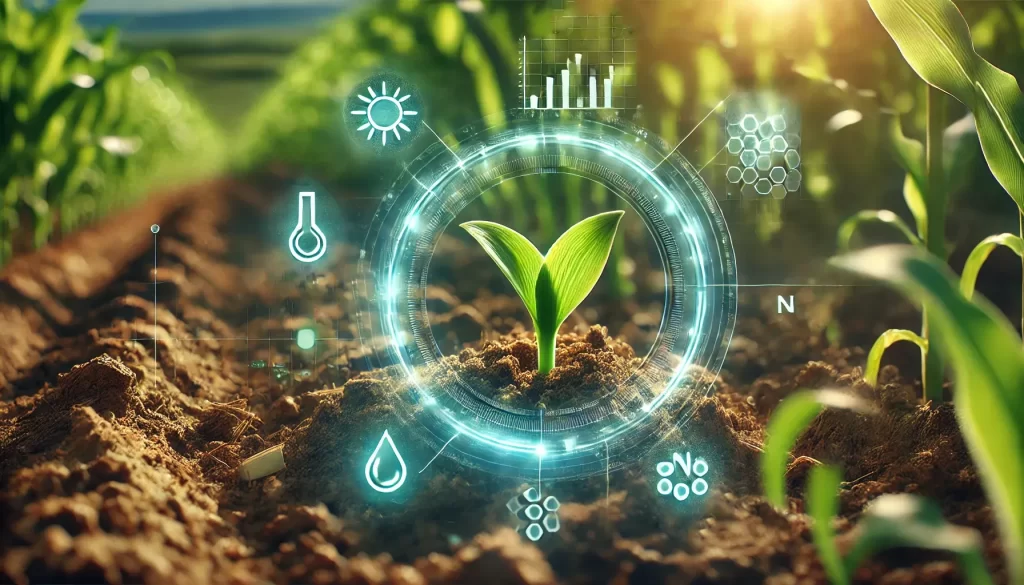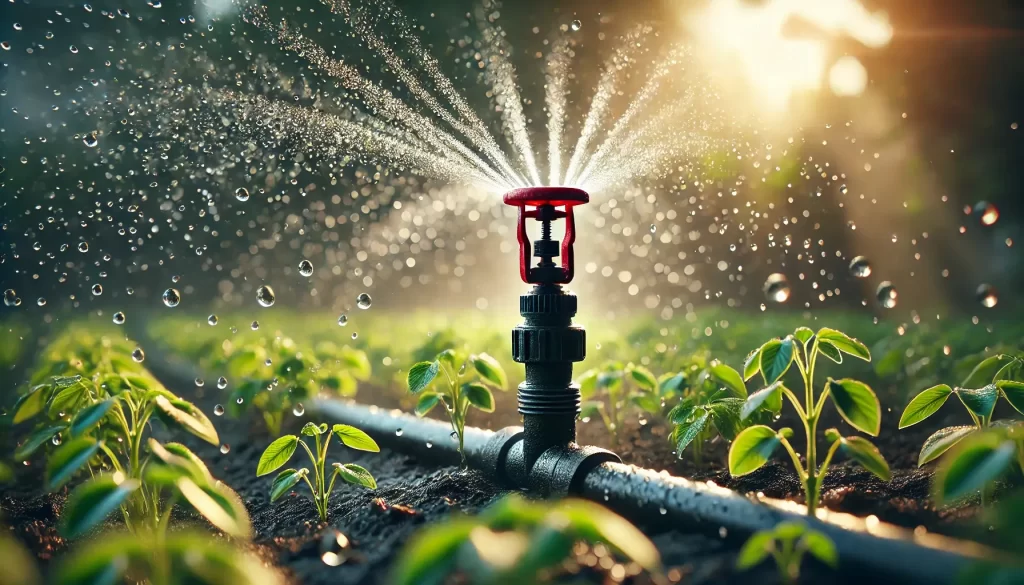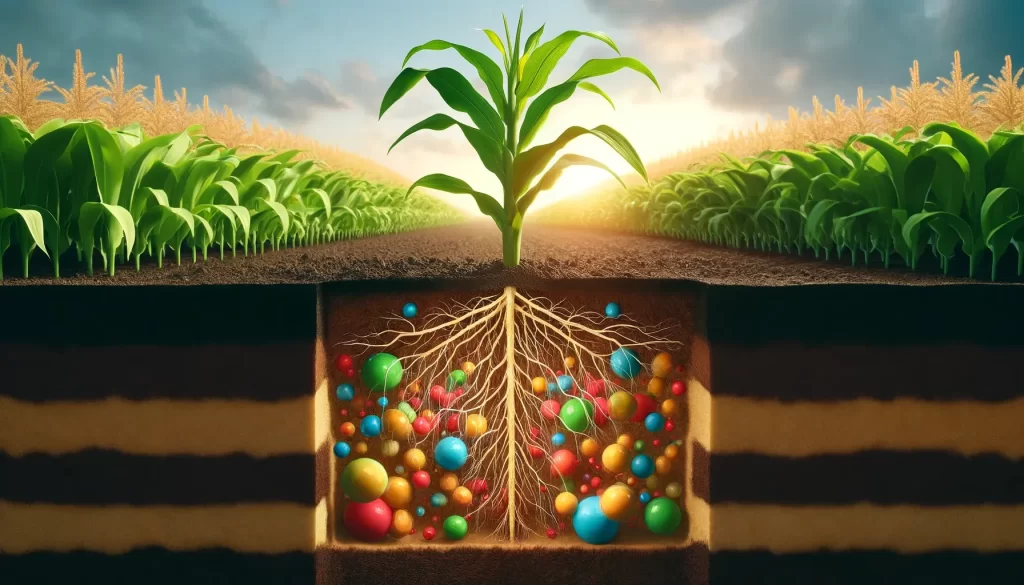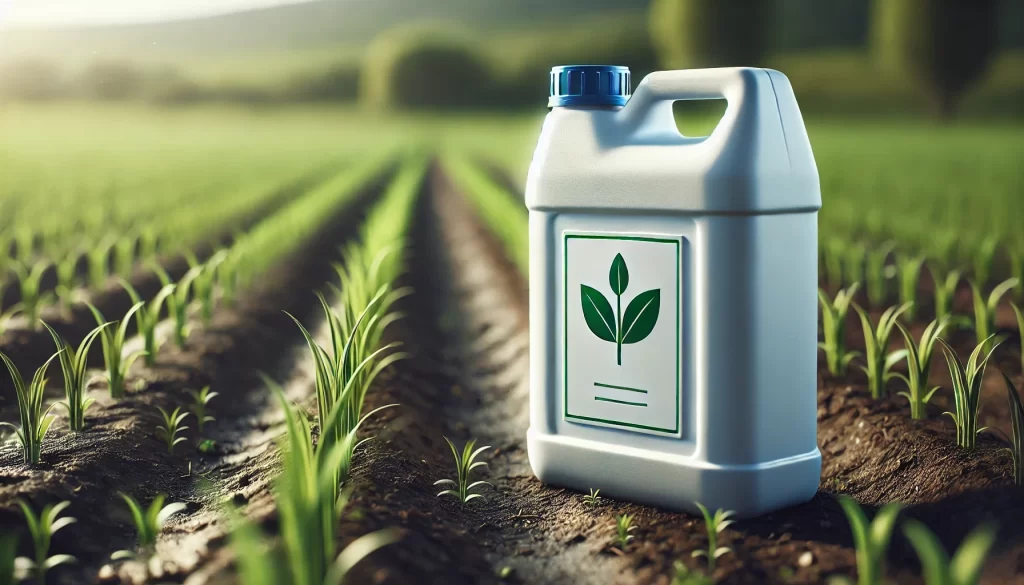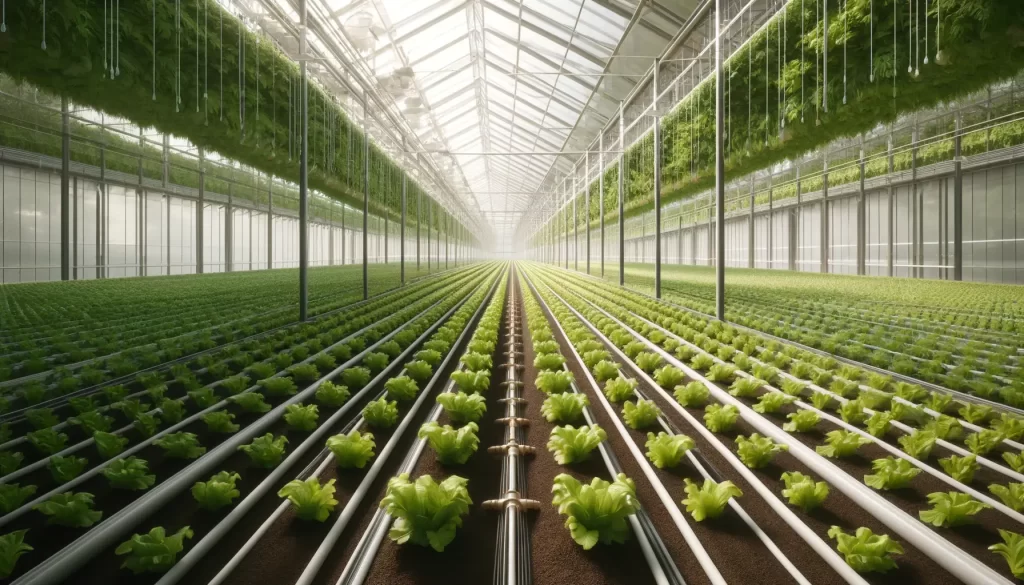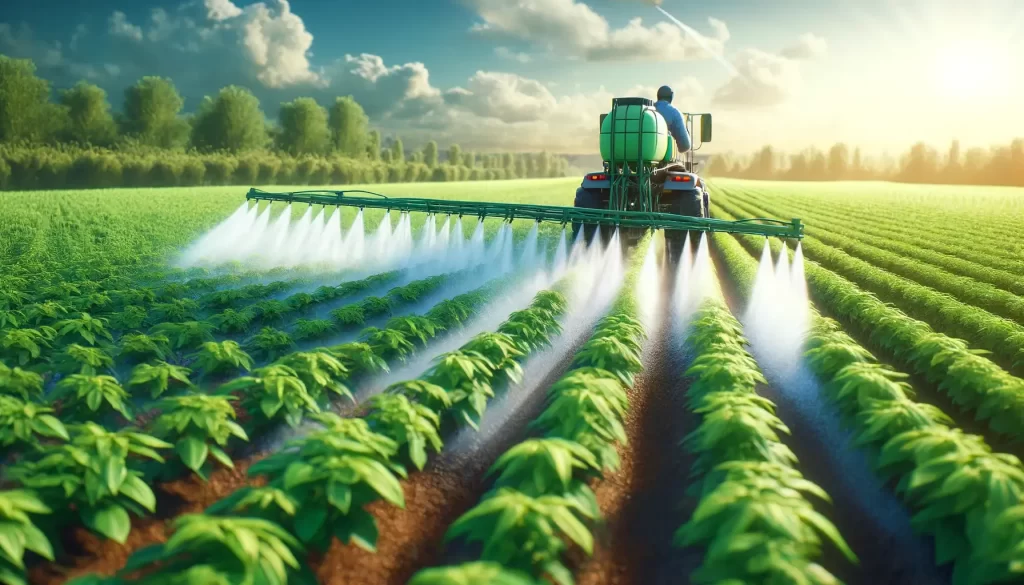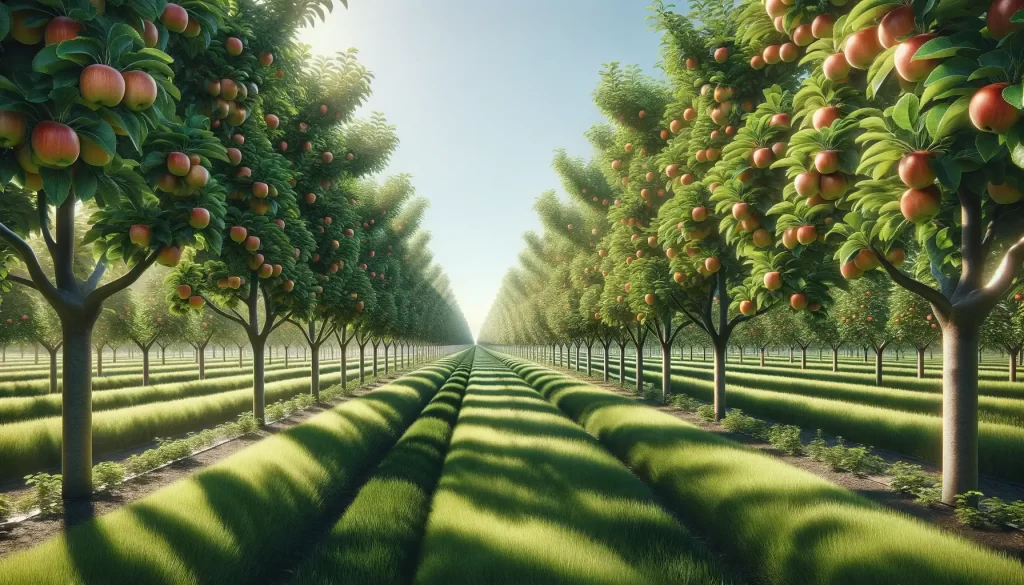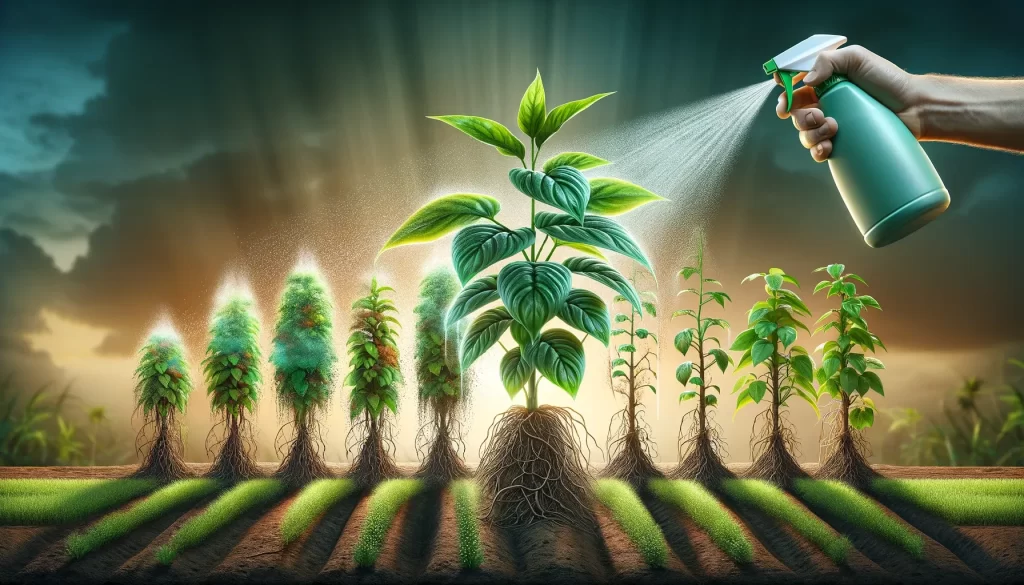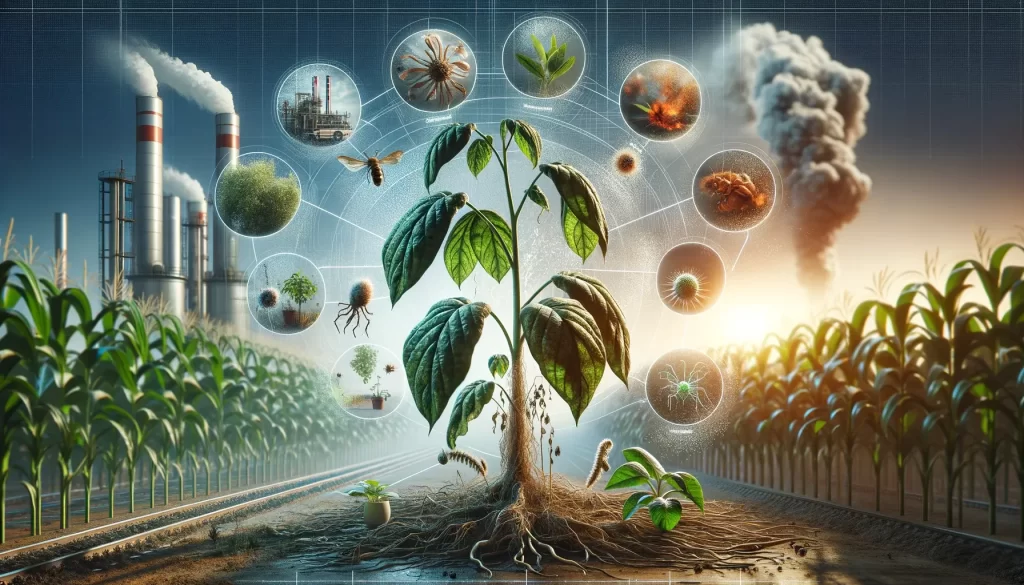Definition of Industrial Liquid Fertilizers
Industrial liquid fertilizers are fertilizers in liquid form that contain plant nutrients in high concentration. They can contain all the nutrients necessary for the healthy growth and development of plants, such as nitrogen, phosphorus, potassium and micronutrients. Liquid fertilizers are water soluble and easily absorbed. Therefore, they can be quickly taken up by plants and help prevent nutrient deficiency.
Reasons for the Widespread Use of Liquid Fertilizer
In recent years, many factors have played a role in the widespread use of industrial liquid fertilizer. Some of these factors are:
- Easy application: Liquid fertilizers can be easily applied without the need for special equipment. They can also be applied with irrigation systems.
- Quick effect: Liquid fertilizers are quickly absorbed by plants and help prevent nutrient deficiency.
- Homogeneous mixture: Liquid fertilizers can be mixed homogeneously into the soil or irrigation water.
- Less storage space: Liquid fertilizers require less storage space than solid fertilizers.
- Less environmental pollution: Liquid fertilizers cause less environmental pollution than solid fertilizers.
Purpose of the Article
In this article, we will review the basic information of industrial liquid fertilizers. We will discuss the advantages and disadvantages of liquid fertilizers, their types, production stages, storage and transportation conditions, application methods and environmental effects. We will also touch upon future trends and the important role liquid fertilizers play in modern agriculture.
Advantages and Disadvantages of Liquid Fertilizers
Advantages over Solid Fertilizers:
- Easy application
- Quick effect
- Homogeneous mixture
- Less storage space
- Less environmental pollution
- Less pollination
- Higher nutritional intake
- Less soil compaction
Disadvantages compared to Solid Fertilizers:
- Higher production cost
- Higher transportation cost
- More storage risk
- Risk of freezing
- Risk of burns
- Some special situations to consider in practice
Liquid Fertilizer Types
Industrial liquid fertilizers can be divided into various groups according to the nutritional elements they contain. The main types of liquid fertilizer are:
- Nitrogenous liquid fertilizers: Fertilizers containing nitrogen such as urea, ammonium nitrate, ammonium sulfate.
- Phosphate liquid fertilizers: Fertilizers containing phosphorus such as monoammonium phosphate, diammonium phosphate.
- Potassium liquid fertilizers: Potassium Fertilizers containing potassium such as nitrate, potassium sulfate.
- Compound liquid fertilizers: Fertilizers containing more than one nutritional element such as nitrogen, phosphorus and potassium.
- Microelement liquid fertilizers:Fertilizers containing micronutrient elements such as iron, copper and zinc.
Production of Liquid Fertilizers
The production of industrial liquid fertilizers consists of various stages such as processing and mixing of raw materials, chemical reactions and evaporation. Production stages may vary depending on the type of fertilizer and production method.
Raw Materials:
The raw materials used in liquid fertilizer production are:
- Nitrogenous raw materials: Ammonia, urea, ammonium nitrate
- Phosphate raw materials: Phosphoric acid, monoammonium phosphate, diammonium phosphate
- Potassium raw materials: Potassium chloride, potassium sulfate
Storage and Transportation of Liquid Fertilizers
Storage Conditions:
Liquid fertilizers should be stored under appropriate conditions. Storage tanks should be protected from sunlight and heat. It is important that the tanks are airtight and do not leak. The risk of freezing of liquid fertilizers should also be taken into consideration.
Transportation Methods:
Liquid fertilizers are transported by special tankers. Tankers carry all the necessary equipment for the safe transportation of liquid fertilizers. must have equipment. During transportation, the risk of spillage or leakage of liquid fertilizers must be avoided.
Safety Precautions:
Liquid fertilizers can be flammable and explosive. Therefore, necessary safety precautions should be taken during storage and transportation. Security measures include:
- Fireproof and explosion-proof storage tanks
- Fire fighting equipment
- Personal protective equipment (gloves, glasses, mask)
- Emergency plan
Application of Liquid Fertilizers
Application Methods:
Liquid fertilizers can be applied by various methods. The main application methods are:
- Soil application: Liquid fertilizers are sprinkled or injected into the soil.
- Foliar application: Liquid fertilizers are sprayed on the leaves.
- Application with irrigation systems: Liquid fertilizers can be applied with irrigation systems.
Things to Consider in Application:
It is important to apply liquid fertilizers correctly. Some points to consider in practice are:
- The application method appropriate to the type and content of the fertilizer should be chosen.
- The dose of fertilizer should be determined according to soil and plant analyses.
- Weather conditions should be taken into consideration during application.
- Application equipment should be checked before each application.
- Safety precautions must be taken.
Equipment Usage:
Various equipment is used in the application of liquid fertilizers. The main application equipment are:
- Fertilizer spreaders
- Sprayers
- Irrigation systems
Environmental Effects of Liquid Fertilizers
Effects on Soil and Water Resources:
Excessive use of liquid fertilizers can cause contamination of soil and water resources. Transport of nutrients such as nitrate and phosphate into water can cause water pollution.
Air Pollution:
Gases such as ammonia may be released during the production and application of liquid fertilizers. These gases can cause air pollution.
Waste Management:
It is important to properly manage the waste generated in the production and application of liquid fertilizers. Waste must be disposed of without harming the environment.
Future Trends
Precision Agriculture Practices:
Precision agriculture practices will enable more effective and efficient use of liquid fertilizers. In this way, the negative effects of fertilizers on the environment will be reduced.
Controlled Release Liquid Fertilizers:
Controlled-release liquid fertilizers ensure that nutrients are absorbed by plants for a longer period of time. In this way, the frequency of fertilization is reduced and the negative effects on the environment are reduced.
Nano Technology Based Liquid Fertilizers:
Nanotechnology-based liquid fertilizers enable nutrients to be absorbed more easily by plants. In this way, the efficiency of fertilizers increases and their negative effects on the environment are reduced.
Conclusion
Industrial liquid fertilizers play an important role in modern agriculture. is playing. With the correct use of liquid fertilizers, productivity and quality can be increased.
As Greenlive, we have a wide range of We offer a range of industrial liquid fertilizers and application technology. Our expert team helps you determine the most appropriate fertilizer and application method by creating a fertilization program based on soil and plant analyses.
You can contact us to get more information about liquid fertilizers or to consult Greenlive products.
Additional Sections:
Additional Information:
- Information on the safe use of liquid fertilizers
- Information on storage and transportation of liquid fertilizers
- Information about the environmental effects of liquid fertilizers
Dictionary:
- Nitrogen
- Phosphorus
- Potassium
- Micronutrients
- pH
- Soil analysis
- Plant analysis
- Fertilization program
- Application method



